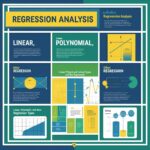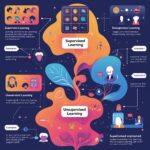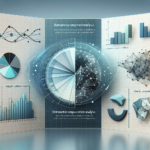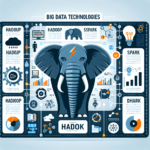
Data science is an interdisciplinary field that combines various tools, algorithms, and machine learning principles to extract meaningful insights from structured and unstructured data. As organizations continue to generate vast amounts of data, the significance of data science becomes increasingly crucial in the digital landscape. Through the application of statistical methods, data analysis, and computational algorithms, data science enables businesses to transform raw data into actionable intelligence.

The importance of data science can be observed across multiple industries, including finance, healthcare, marketing, and technology. For instance, in the finance sector, data science facilitates risk assessment and fraud detection by analyzing transaction patterns. In healthcare, data scientists harness patient data to improve outcomes through predictive analytics that can anticipate disease outbreaks or patient behaviors. Furthermore, in marketing, data analytics assist companies in understanding consumer preferences, thereby allowing for targeted marketing strategies that enhance customer engagement and retention.
Key terms associated with data science include ‘big data’, which refers to the massive volumes of data generated daily, and ‘machine learning’, a subset of artificial intelligence that enables systems to learn from data patterns without being explicitly programmed. Additionally, ‘data mining’ involves exploring large datasets to uncover hidden patterns. The integration of these concepts is vital as organizations strive to leverage data for strategic decision-making.
The landscape of data science is rapidly evolving, driven by technological advancements and increasing data proliferation. As we move forward, organizations must adapt to emerging trends in this field, which will play a pivotal role in shaping strategies and driving innovation. This unfolding narrative not only highlights the current relevance of data science but underscores its potential to transform industries through data-informed decisions.
The field of data science has undergone a significant transformation since its inception, evolving from early statistical methodologies to a multifaceted discipline that integrates computing, statistics, and domain-specific knowledge. Initially, data analysis was primarily concerned with statistical techniques to interpret small datasets, yet the increasing availability of data has redefined the landscape of data science considerably. In the 1960s and 1970s, the advent of computers allowed for more complex data computations, laying the groundwork for what would eventually become the data-driven world we know today.
The term “data science” first emerged in the late 20th century, particularly during the 1990s when statisticians began to recognize the need for new methods to analyze larger datasets. The rise of the internet further accelerated this shift, leading to an explosion of data generation. As databases grew in size and complexity, traditional data analysis techniques were no longer sufficient, paving the way for more sophisticated approaches like machine learning and data mining.
By the early 2000s, the concept of “big data” entered the mainstream, marking a pivotal moment in the evolution of data science. With the ability to process vast amounts of data quickly and efficiently, organizations began tapping into new sources of information to gain deeper insights and drive decision-making. Technologies such as Hadoop and Spark emerged, enabling the storage and analysis of big data across distributed systems and fueling further innovation in the field.
Today, data science encompasses a wide range of techniques, including artificial intelligence, predictive modeling, and advanced analytics. This evolution not only highlights the discipline’s adaptability but also underscores its critical role in various industries, from healthcare to finance. As we move forward, it is essential to recognize the historical milestones that have shaped data science, as they provide a framework for understanding current trends and anticipating future developments.
The field of data science is continuously evolving, driven by rapid advancements in technology and the increasing availability of data. Among the most notable trends currently shaping the landscape of data science are machine learning, artificial intelligence (AI), and predictive analytics. These elements not only enhance the capabilities of data scientists but also influence various business strategies and decision-making processes across industries.
Machine learning, a subset of artificial intelligence, enables systems to learn and improve from experience without explicit programming. Organizations are increasingly harnessing machine learning algorithms to analyze vast amounts of data, leading to better insights and streamlined operations. This trend is particularly evident in sectors like finance, healthcare, and retail, where companies leverage machine learning for tasks such as fraud detection, patient diagnosis, and customer behavior analysis.
Additionally, the integration of AI into data science is transforming traditional methods of data handling. AI technologies facilitate advanced data processing and visualization, which allows organizations to derive actionable insights with greater efficiency. Businesses are adopting AI-driven tools to automate repetitive tasks, freeing data scientists to focus on more complex problem-solving and strategic planning.
Predictive analytics is another significant trend gaining traction within data science. By utilizing statistical algorithms and machine learning techniques, organizations can forecast future outcomes based on historical data. This predictive capability supports better decision-making and resource allocation, enhancing overall operational effectiveness. Companies that adopt predictive analytics can anticipate market trends, optimize supply chains, and tailor their marketing strategies to meet customer demands.
In summary, the current trends in data science, including machine learning, artificial intelligence, and predictive analytics, are fundamentally reshaping how businesses operate. These developments are fostering a data-driven culture, leading to informed decision-making and strategic growth across various sectors, ultimately paving the way for a more efficient and innovative future.
Data science is poised to undergo significant transformations driven by emerging technologies that enhance data analysis and processing capabilities. One of the most groundbreaking developments in this domain is quantum computing. With its ability to process vast amounts of data at incredible speeds, quantum computing has the potential to solve complex problems that are currently beyond the reach of traditional computing. By leveraging quantum bits, or qubits, data scientists can explore new algorithms that significantly reduce processing times, enhancing the efficiency of data-driven insights.
Another innovation shaping the future of data science is the improvement of advanced algorithms. As machine learning and artificial intelligence continue to evolve, new algorithms such as deep learning architectures and reinforcement learning techniques are becoming more prevalent. These sophisticated models are capable of learning from large datasets, allowing for more accurate predictions and the extraction of valuable patterns from vast amounts of information. The integration of these advanced algorithms will enable data scientists to uncover insights that were previously undetectable, driving decision-making processes in a variety of sectors.
In addition to quantum computing and advanced algorithms, real-time data processing technologies are also making a significant impact. The increasing demand for immediate insights from data requires robust frameworks that can handle streaming data efficiently. Technologies such as Apache Kafka and Apache Flink facilitate the real-time analysis of data, enabling organizations to respond quickly to changing conditions. This capability is particularly crucial in areas like finance and healthcare, where timely data analysis can lead to improved outcomes.
As these emerging technologies continue to develop, they will undoubtedly reshape the landscape of data science. The integration of quantum computing, advanced algorithms, and real-time data processing will propel data science into a new era, significantly enhancing its capabilities and applications across various industries.
Machine learning (ML) is increasingly transforming the landscape of data science, acting as a pivotal component in predictive analytics and automation. The ability of algorithms to learn from data, identify patterns, and make decisions with minimal human intervention underscores its significance in various sectors, including finance, healthcare, and marketing. As data continues to grow in volume and complexity, the importance of sophisticated machine learning techniques is more pronounced than ever.
Predictive analytics powered by machine learning enables businesses to forecast future trends and behaviors with remarkable accuracy. By employing historical data, organizations can train machine learning models to predict outcomes, allowing for more informed decision-making. For instance, in retail, machine learning algorithms analyze customer purchasing patterns to forecast inventory needs, thereby optimizing stock management and reducing excess costs. This capability becomes even more crucial in dynamic market conditions, where adaptability is key to maintaining a competitive edge.
Automation, another key benefit of machine learning, streamlines operations and enhances efficiency. Tasks such as data entry, customer service interactions, and even complex analytical processes can be partially or entirely automated through machine learning applications. This not only reduces the manual workload on employees but also minimizes human error, ensuring more reliable results. Many organizations are integrating machine learning capabilities into their existing systems to facilitate this level of automation, enabling a shift towards more strategic, high-level activities for their teams.
As machine learning continues to evolve, its integration into data science practices will further empower businesses to derive valuable insights from their data. Organizations that recognize and leverage the potential of machine learning will likely position themselves for enhanced operational efficiency and competitive advantage. The future will undoubtedly be shaped by these technologies as they redefine the possibilities within data science.
The influence of big data within the realm of data science is poised to grow significantly in the coming years, driven by the exponential increase in data generation. Organizations are now facing a deluge of information from various sources, including social media, IoT devices, and transactional systems. This relentless stream of big data poses both opportunities and challenges. For organizations to capitalize on this potential, they must adopt advanced analytical tools and methodologies that allow for the effective management and interpretation of large and complex data sets.
As data continues to expand, traditional data storage and processing solutions often prove inadequate. Consequently, cloud computing technologies are increasingly being embraced, enabling more flexible, scalable, and efficient handling of big data. Moreover, advancements in data processing frameworks, such as Apache Hadoop and Spark, facilitate the real-time analysis of vast data sets. By harnessing these technologies, organizations can extract meaningful insights that drive informed decision-making and strategic initiatives.
However, navigating the challenges posed by big data is not without its hurdles. Data privacy concerns, regulatory compliance, and the need for data governance frameworks are integral elements that organizations must address. Furthermore, the proliferation of artificial intelligence (AI) and machine learning (ML) in data analysis introduces complexities in the interpretation of big data, necessitating skilled professionals who can bridge the gap between raw data and actionable insights. Thus, it is critical for organizations to invest in talent development and training to ensure their teams are equipped to utilize these emerging technologies effectively.
In light of these considerations, it is evident that the future of data science will be inextricably linked to the evolution of big data. Organizations that proactively adapt to these trends and invest in the right technologies and strategies will be well-positioned to unlock the value hidden within their data assets, ultimately driving innovation and competitive advantage.
Artificial Intelligence (AI) has emerged as a pivotal force within the data science landscape, revolutionizing how data is analyzed, interpreted, and transformed into actionable insights. By leveraging sophisticated algorithms and machine learning techniques, AI not only enhances data processing capabilities but also automates numerous tasks that were previously time-consuming and labor-intensive. The integration of AI within data science practices facilitates rapid data exploration, pattern recognition, and anomaly detection, significantly improving the accuracy and efficiency of decision-making processes.
The application of AI is particularly evident in predictive analytics, where traditional statistical methods are augmented by machine learning models. These AI-driven models are capable of analyzing vast amounts of data far beyond human capacity, identifying trends and forecasting outcomes with remarkable precision. Furthermore, natural language processing (NLP), a subfield of AI, enables data scientists to extract valuable insights from unstructured data sources such as social media, customer feedback, and open text documents, thus enriching the analytical landscape.
As AI continues to evolve, its impact on the job market in data science is undeniable. Roles traditionally focused on manual data manipulation and analysis may increasingly transition towards positions that require expertise in AI technologies. Data scientists will need to develop skills in programming, machine learning, and understanding AI frameworks to stay competitive in the job market. Moreover, new roles will emerge, focusing on AI ethics, bias detection, and the interpretability of AI models, illuminating the need for a diverse skill set within the discipline.
In conclusion, the cumulative effects of AI on data science will elevate both the standards and capabilities of the field, ultimately redefining career trajectories and enhancing the overall landscape of data-driven decision-making. As organizations increasingly adopt AI technologies, embracing these changes will be essential for professionals aspiring to thrive in the future of data science.
Predictive analytics is increasingly recognized as a pivotal tool that shapes the future of decision-making across various industries. By harnessing historical data and employing advanced statistical techniques, organizations can forecast future events with remarkable accuracy. This methodology leverages various data inputs, from customer behavior to market trends, thereby enabling businesses to identify opportunities and mitigate risks effectively.
The significance of predictive analytics lies in its ability to distill vast amounts of information into actionable insights. For instance, companies can utilize machine learning algorithms to analyze previously collected data, thereby predicting customer preferences and purchasing patterns. This foresight vastly improves the decision-making process, allowing businesses to tailor their strategies accordingly, thereby ensuring alignment with market demands and consumer expectations.
Moreover, predictive analytics provides organizations with a competitive advantage. By anticipating market changes, businesses can proactively develop strategies that cater to emerging trends, enabling a more agile response to external factors. This capability not only enhances operational efficiency but also supports strategic planning in resource allocation and risk management. Many organizations that implement predictive analytics report significant improvements in their forecasting accuracy, leading to more informed decision-making processes.
In the rapidly evolving field of data science, the importance of ethics and privacy cannot be overstated. As organizations increasingly rely on data-driven decision-making, the ethical implications of data usage have become a pivotal concern. The integration of emerging technologies, such as artificial intelligence (AI) and machine learning, further complicates the landscape, raising critical questions regarding data security, consent, and transparency.
One of the primary ethical considerations in data science is the protection of personal information. With the exponential growth of data collected from various sources, including social media, online transactions, and IoT devices, the potential for privacy violations is significant. Data scientists must be aware of the legal frameworks governing data usage, such as the General Data Protection Regulation (GDPR) in Europe, which emphasizes individual rights and informed consent. Ensuring compliance with such regulations is crucial in safeguarding user privacy and maintaining public trust.
Moreover, the ethical usage of algorithms, especially in predictive modeling, needs careful scrutiny. Algorithms can inadvertently perpetuate biases present in historical data, leading to unfair outcomes in areas such as hiring, lending, and law enforcement. Data scientists must commit to adopting bias mitigation strategies and ensuring that their models undergo thorough validation processes to minimize adverse effects on marginalized populations.
In this light, organizations are encouraged to implement robust data governance frameworks that prioritize transparency, accountability, and user education. Regular audits and ethical training should be integrated into data science practices to foster a culture of responsibility. By prioritizing ethics and privacy, data scientists can navigate the complexities of emerging technologies while contributing positively to society.

As the landscape of data science continues to evolve, data scientists must equip themselves with the necessary tools and knowledge to thrive in a competitive environment. One essential tip for aspiring and current data scientists is to commit to continuous learning. Given the rapid advancements in technologies such as artificial intelligence and machine learning, staying updated on the latest methodologies, programming languages, and data analytics tools is crucial. Data scientists should consider enrolling in online courses, attending workshops, and participating in webinars to further their understanding and skills.
Building a diverse skill set is equally important. While proficiency in key programming languages like Python and R is fundamental, data scientists should also explore other domains within data science, such as data engineering and data visualization. Familiarity with cloud computing platforms and big data technologies will enhance their capability in handling large datasets effectively. By broadening their expertise, data scientists can play versatile roles within teams, contributing to various aspects of projects ranging from data preprocessing to model deployment.
Staying informed about current industry trends is vital for any data scientist. Following reputable data science blogs, subscribing to research journals, and participating in online forums or communities can offer insights into emerging technologies and best practices. Engaging with professionals in the field through networking events or social media platforms such as LinkedIn allows for the sharing of knowledge and experiences that can inform one’s own practices.
Lastly, practical experience is irreplaceable. Working on real-world projects or participating in hackathons and competitions can provide valuable hands-on experience, allowing data scientists to apply theoretical knowledge to tangible problems. By implementing these actionable tips, data scientists can enhance their careers and remain relevant in the ever-changing world of data science.
Data science is poised to revolutionize several industries, significantly enhancing efficiency, decision-making, and innovation. Among these, healthcare, finance, and marketing are particularly noteworthy as they increasingly leverage data-driven insights to improve outcomes and profitability.
In the healthcare sector, data science is transforming patient care and operational efficiency. Predictive analytics, powered by machine learning models, can identify potential health issues before they arise, enabling timely interventions. For instance, hospitals are utilizing algorithms that analyze patient records to predict readmission rates, thereby optimizing resource allocation and enhancing patient outcomes. Additionally, genomics and personalized medicine are spearheaded by data science, enabling customized treatments based on an individual’s genetic makeup.
Finance is another industry experiencing a significant shift due to data science applications. Financial institutions are employing advanced analytics to detect fraudulent activities, assess risks, and personalize customer experiences. A notable example is the use of credit scoring models that rely on diverse data sources to provide a more comprehensive view of a consumer’s creditworthiness. Furthermore, algorithmic trading systems leverage real-time data analysis to make instantaneous buying and selling decisions, maximizing profits for investors.
Marketing, too, has seen a profound transformation driven by data science. Companies are harnessing consumer data to tailor their marketing strategies and improve customer engagement. For instance, tools that analyze customer behavior on e-commerce platforms are helping brands personalize recommendations and promotions, ultimately leading to enhanced customer satisfaction and increased sales. The success of targeted advertising campaigns, often driven by data insights, demonstrates the efficacy of employing data science in marketing efforts.
As these industries continue to evolve, the applications of data science are expected to grow, opening new pathways for innovation and efficiency. More organizations are recognizing the immense potential that data science holds, paving the way for a future where data-driven decision-making becomes the norm across sectors.
As the field of data science continues to evolve rapidly, professionals aspiring to excel in this domain must prioritize developing specific skills and knowledge areas. Below, we outline some critical focus areas that will facilitate growth and adaptability in the ever-changing landscape of data science.
First and foremost, proficiency in programming languages such as Python and R is essential. These languages are the backbone of data manipulation, statistical analysis, and machine learning algorithms. Emerging data scientists should practice coding proficiency while also exploring data visualization tools like Tableau and Power BI, which are crucial for communicating insights effectively.
In addition to programming skills, understanding fundamental statistical concepts is imperative. This includes knowledge of probability, distributions, hypothesis testing, and regression analysis, which form the bedrock of decision-making and predictive modeling in data science. Acquiring these statistical principles will enable practitioners to grasp how data insights can drive business strategies.
With the proliferation of big data, familiarity with database management systems and data querying languages, such as SQL, cannot be overlooked. As organizations increasingly rely on vast datasets for strategic planning, the ability to extract and manage data efficiently becomes a necessity for aspiring data professionals.
Moreover, as artificial intelligence and machine learning technologies continue to advance, engaging in specialized training or certification programs is highly advisable. Numerous platforms offer online courses tailored to specific data science competencies, including deep learning and natural language processing. Completing these certifications can significantly enhance employability and expertise.
Lastly, remaining updated with the latest industry trends is vital. Participating in data science conferences, webinars, and reading peer-reviewed journals will provide valuable insights into emerging technologies and methodologies. By equipping oneself with the right skills and knowledge, individuals can effectively prepare for a future enriched with data-driven innovation.
The field of data science is evolving at an unprecedented pace, driven by the rapid advancement of technologies and methodologies that continue to reshape the landscape. As we have explored, trends such as artificial intelligence, machine learning, big data analytics, and automation are not just buzzwords; they represent the future of how we handle and interpret information. Adapting to these changes is essential for professionals seeking to thrive in an environment where data-driven decision-making becomes the norm.
Moreover, the emergence of new data sources, such as IoT devices and social media platforms, is expanding the potential for insights that were previously unattainable. By leveraging these diverse datasets, organizations can develop a comprehensive understanding of consumer behavior and operational efficiency. However, this shift also necessitates a commitment to ethical considerations surrounding data privacy and security. As data scientists, embracing accountability while navigating these complexities will be critical for maintaining public trust and fostering sustainable growth.
Staying proactive in adopting new technologies and methodologies is vital for success in data science. Continuous learning and professional development become essential strategies for individuals to remain competitive. As such, participating in industry conferences, engaging with academic literature, and joining professional networks are all valuable methods for nurturing skillsets aligned with the latest trends in data science.
In conclusion, the future of data science holds immense potential for improving decision-making processes across various sectors. By remaining adaptable and embracing emerging trends, data professionals can harness the power of innovation, ensuring their contributions remain relevant and impactful in an increasingly data-driven world. As we move forward, it is crucial to recognize that the journey of data science is not static; instead, it is a dynamic landscape that requires vigilance and enthusiastic engagement.
Looking to advertise, promote your brand, or explore partnership opportunities?
Reach out to us at
[email protected]












Chose where you want to study, and we will let you know with more updates.